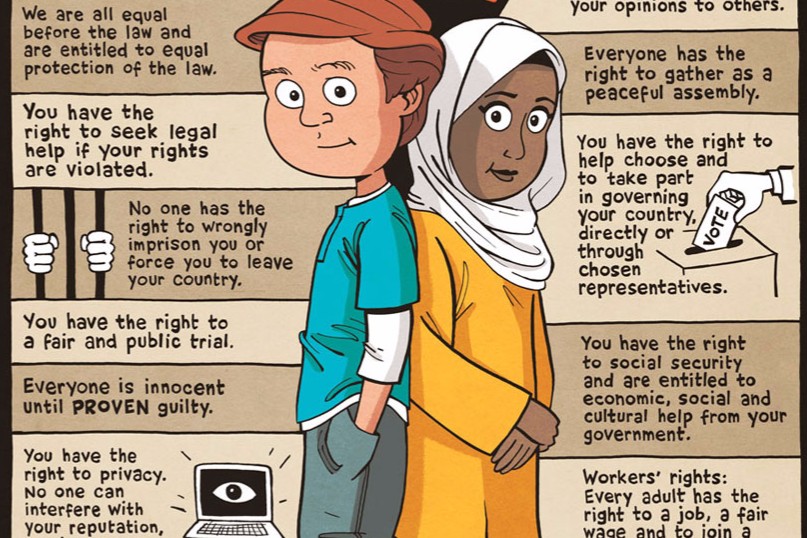December 10 is Human Rights Day – the anniversary of the signing of the Universal Declaration of Human Rights in 1948. I recently attended a meeting with the UN High Commissioner for Human Rights, Zeid Ra’ad Al Hussein, a distinguished statesman who must deal on a daily basis with the most horrific violators of human rights in our world. He is truly an unsung hero.
He reminded us that human rights frameworks are not the product of ivory-tower intellectuals. They were forged in the wake of 100 million brutal deaths in two world wars caused by the “my country first” mindset. As the World War II generation passes away, the commitment of countries to uphold these frameworks as key to human survival is eroding.
During the meeting he also pointed out that respect for human rights has never been popular, and every step forward requires struggle. So how can we make a difference in that struggle?
We could start by re-reading the Universal Declaration – signed by every country on Earth. Perhaps even aloud, with friends! Record yourself reading an article! Its preamble is both familiar and profound: “Recognition of the inherent dignity and of the equal and inalienable rights of all members of the human family is the foundation of freedom, justice and peace in the world.”
This is a lid on populism. Human rights are not up for a vote. They are “inalienable” – you have them as a result of being human, not of being a documented citizen of any particular country or because a government has granted you rights.
The Declaration guarantees that everyone shall have voice in governance. And this is reinforced in Article 29.1 (my favorite): “Everyone has duties to the community in which alone the free and full development of his personality is possible.”
That is, I can only achieve my full potential through public service in my community. For most of us, most of the rights enumerated in the Universal Declaration can only be realized at the community level. Issues such as primary education, public health, child protection, free assembly all depend on action by local government working in partnership with active citizens.
If you study the quality of grassroots level governance around the world, you will see that the countries where rights are violated are the ones where community-level institutions are weak – where they are unable to support citizens in achieving their aspirations.
And as the High Commissioner stated, “Today’s human rights violations are tomorrow’s wars.”
We cannot allow our nuclear-armed world to return to the era of battling tyrannies. We cannot tolerate a world that treats women and girls as second-class citizens or worse. We especially cannot allow the frustrations of youth to lead them to terrorism. We must fight to ensure citizens everywhere can enjoy their rights and achieve their aspirations, and that requires not only strengthening international human rights treaties. It requires strengthening participatory, community-level institutions everywhere.


